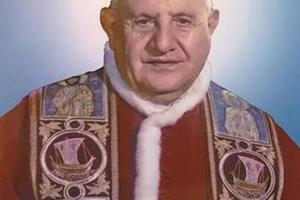Our Duty to Those in Need
The Parable of the Good Samaritan stands as an inspirational example of helping those in need. The Good Samaritan may not have had a duty, strictly speaking, to come to the aid of the injured man who was left by the side of the road. No doubt, he acted out of love.
The Gospel commands us to love our neighbor. To what extent, we may ask, does the law require us to help another who is in distress? Under what circumstances does the law deem it our duty to come to the aid of a fellow human being?
An example from the annals of law sheds an important light on the duty we have toward our neighbor.
In 1907, Orlando Depue, a cattle buyer, was called to inspect cattle that were for sale at the home of Mr. Flatau. It was a cold January night in Minnesota, and Flatau invited the buyer to dine with him at his home. During the dinner, Depue was overcome by a "fainting spell" and became very weak and seriously ill. He asked permission to stay overnight but was refused.
Flatau led Depue out to his guest’s sleigh, put him into it, adjusted the robes around him and threw the reins, which he was too weak to hold, over his shoulders. Flatau then started the horses on the road to town. Depue was found the next morning by the side of the road and three-quarters of a mile away from town. He was badly frostbitten and nearly frozen to death. Depue sued.
The judge, imposing liability on Flatau for the loss of Depue’s frostbitten fingers, stated: "In the case at bar, defendants were under no contract obligation to minister to plaintiff in his distress; but humanity demanded they do so, if they understood and appreciated his condition. ... The law as well as humanity required that [Depue] not be exposed in his helpless condition to the merciless elements" (Depue v. Flatau 100 Minn. 299, 111 N.W. 1, 1907).
And so, the court ruled that the defendant owed Depue a duty, upon discovering that he had been taken severely ill, not to expose him to danger on a cold winter night by sending him away unattended while he was in a fainting and helpless condition.
It is interesting to note that the court cited "humanity" as a compelling reason to help another in distress, as exemplified in the Depue/Flatau case. It is not the written law, codified, studied and cited, that defines the fundamental duties we have toward our neighbor. There is a higher law: a law of humanity that is sufficiently evident as not to require codification.
The Depue/Flatau case has been cited in an approving fashion by legal authorities and many subsequent court decisions.
In one example, the American Law Institute, speaking in general, has stated that it makes no difference whether the helpless person is a guest or has trespassed; he has the privilege of staying. His host has the duty not to injure or put him into an environment where he becomes nonviable. The obligation arises when one person "understands and appreciates" the condition of the other (American Law Institute, Restatement of Torts, Second, 1965, sec, 197).
And there is the case of a 6-year-old boy, who was injured falling down an escalator. Store personnel, though they had time to stop the escalator before the child was hurt, failed to do so. The court cited the Depue/Flatau case, stating, "Similarly, there is a duty to assist an invitee or business guest in time of peril, even though the initial injury was not caused by defendant’s negligence. In the instant case, the store had the exclusive means of stopping the escalator and extricating the plaintiff" ("Negligent Failure to Stop Escalator," Indiana Law Journal: Vol. 17: Iss. 3, Article 7, 1942).
The pro-choice argument insists that a pregnant woman has no duty toward her unborn child. Abortion, in most instances, renders the unborn child "nonviable." This argument is not only dangerous for the unborn who are unwanted, but for everyone.
If the principle prevails that no one has a duty toward anyone else, especially those in distress or need, then we are all doomed.
There is no place for the Good Samaritan in the pro-abortion handbook. A world of rights without duties is inimical to the law of "humanity." It needs to be reiterated that society is not held together by "contracts," but by love.
Donald DeMarco is a senior fellow of Human
Life International.
He is professor emeritus at St. Jerome’s University in Waterloo, Canada, and an adjunct professor at Holy Apostles College and Seminary in Cromwell, Connecticut.
- Keywords:
- April 20-May 3, 2014















